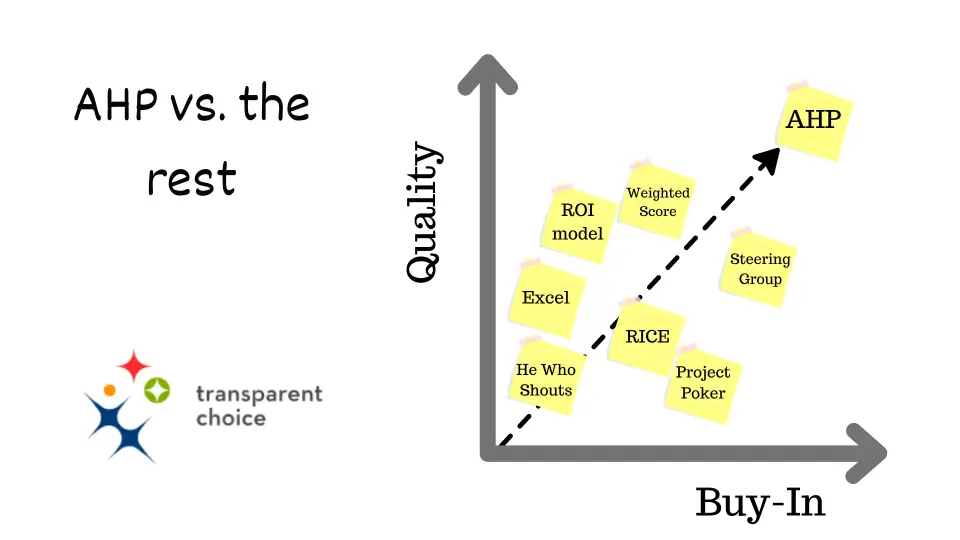If you find yourself constantly seeking deeper meanings and questioning the status quo, you may be the deep thinker in your peer group. Your introspective nature and tendency to ponder philosophical questions set you apart from your friends.
This can lead to engaging discussions and unique perspectives, but it may also make you feel isolated at times. Despite the challenges, your ability to delve into complex topics and offer thought-provoking insights enriches your social circle. As the deep thinker, you bring depth and introspection to your interactions, contributing to a more profound and meaningful connection with your peers.
:max_bytes(150000):strip_icc()/young-female-couple-on-date-bar-wine-glasses-getty-primary-0923-15ef7483754348ac95f716ad7819fe67.jpg)
Credit: www.brides.com
The Essence Of A Deep Thinker
A deep thinker possesses a unique perspective on life, constantly questioning, analyzing, and seeking deeper meaning in everything around them. They have a reflective mind that sets them apart from their peers. Let’s explore the traits of a reflective mind and the impact it has on personal growth.
Traits Of A Reflective Mind
A reflective mind is characterized by certain traits that distinguish them as deep thinkers:
- Curiosity: Deep thinkers have an insatiable thirst for knowledge, always eager to explore new ideas and concepts.
- Introspection: They spend time reflecting on their own thoughts, emotions, and experiences, gaining self-awareness and understanding.
- Open-mindedness: Deep thinkers approach situations with an open mind, willing to consider different perspectives and challenge their own beliefs.
- Analytical thinking: They have a natural inclination to analyze information, breaking it down to its core components to gain a deeper understanding.
- Empathy: Deep thinkers possess a deep sense of empathy, allowing them to understand and connect with others on a profound level.
- Patience: They exhibit patience in their thought process, taking the time to thoroughly ponder and contemplate before forming conclusions.
- Creativity: Deep thinkers often have a creative side, using their imagination to explore new possibilities and think outside the box.
Impact On Personal Growth
The reflective nature of deep thinkers has a profound impact on their personal growth:
- Self-awareness: Through introspection, deep thinkers gain a deeper understanding of their own thoughts, emotions, and motivations, leading to personal growth and self-improvement.
- Critical thinking: Deep thinkers develop strong analytical skills, enabling them to approach problems and challenges with a critical eye, finding innovative solutions.
- Enhanced decision-making: Their ability to consider various perspectives and analyze information allows deep thinkers to make well-informed decisions that align with their values and goals.
- Emotional intelligence: The empathy that deep thinkers possess helps them navigate social interactions and build meaningful relationships, fostering personal growth in emotional intelligence.
- Continuous learning: Deep thinkers are perpetual learners, always seeking new knowledge and experiences to expand their understanding of the world.
- Embracing uncertainty: Their open-mindedness and patience enable deep thinkers to embrace uncertainty and adapt to change, fostering personal growth in resilience and adaptability.
Being a deep thinker is a gift that allows individuals to delve into the depths of their own minds and the world around them. It is a journey of self-discovery and personal growth that enriches their lives and the lives of those around them.
Recognizing Deep Thinkers
Are you the one in your group known for your introspective nature and thought-provoking conversations? If you find yourself drawn to deep philosophical discussions and enjoy contemplating life’s complexities, you might just be the deep thinker among your peers. Here are seven signs that point to your profound thinking nature.
Common Behaviors And Patterns
Deep thinkers often exhibit common behaviors and patterns that set them apart from their peers. These characteristics provide valuable insights into their thought processes and allow us to recognize them in our social circles.One common behavior of deep thinkers is their inclination towards introspection. They regularly engage in self-reflection, seeking to understand their own thoughts, emotions, and motivations. This introspective nature enables them to delve deep into complex topics and analyze them from various perspectives.Deep thinkers also demonstrate a strong curiosity about the world around them. They constantly seek knowledge and are eager to explore different subjects. This thirst for learning fuels their intellectual growth and allows them to make connections between seemingly unrelated concepts.Another characteristic of deep thinkers is their ability to think critically. They possess a natural skepticism and are not easily swayed by popular opinions or trends. Instead, they question assumptions, challenge conventional wisdom, and seek evidence to support their beliefs.Social Dynamics And Interactions
In social settings, deep thinkers often stand out due to their unique approach to conversations and interactions. They tend to listen intently, absorbing information and processing it before responding. This active listening allows them to fully understand the perspectives of others and contribute thoughtful insights to the discussion.Deep thinkers also have a tendency to engage in deep, meaningful conversations. They enjoy exploring complex topics and ideas, and are not content with surface-level discussions. Instead, they seek intellectual stimulation and thrive in environments where they can engage in thought-provoking dialogues.Furthermore, deep thinkers may exhibit introverted tendencies. They often prefer solitude and quiet environments, where they can focus on their thoughts and engage in deep reflection. While they may enjoy social interactions, they also require periods of introspection to recharge their mental energy.Recognizing deep thinkers in your peer group can be a rewarding experience. Their unique behaviors, patterns, and social dynamics set them apart and contribute to the richness of intellectual conversations. By understanding these characteristics, we can appreciate the value that deep thinkers bring to our lives and foster an environment that encourages deep thinking and exploration of complex ideas.Sign 1: Curiosity Beyond The Surface
With an insatiable curiosity that delves beneath the surface, you exhibit the first sign of being a deep thinker in your peer group. Your thirst for knowledge and desire to understand the world on a deeper level sets you apart from others.
Deep thinkers exhibit a profound curiosity that goes beyond superficial details.
Questioning The Status Quo
Deep thinkers challenge conventional ideas and beliefs.
Seeking Profound Understanding
They strive to unravel the complexities of the world around them.

Credit: www.transparentchoice.com
Sign 2: Comfortable With Solitude
One sign that you may be a deep thinker in your peer group is if you are comfortable with solitude. This means that you enjoy being alone and use that time for introspection and reflection. It’s a sign that you value your own company and are not afraid to delve into your own thoughts.
Sign 2: Comfortable with SolitudeDeep thinkers often find solace and comfort in solitude. They enjoy their own company and are not afraid to spend time alone. This is because they understand that sometimes, the best ideas and insights come from within. If you are the deep thinker in your peer group, you probably find yourself feeling energized and refreshed after spending time alone.H3: Embracing Quiet MomentsOne of the key characteristics of a deep thinker is their ability to embrace quiet moments. They are not afraid of silence and are comfortable with their own thoughts. They know that in order to think deeply and reflect on their lives, they need to create space for quiet contemplation. This can be difficult in a world that is so full of noise and distractions, but deep thinkers understand that it is essential for their mental and emotional well-being.H3: The Role of Alone Time in Deep ThoughtAlone time is essential for deep thinkers because it allows them to focus their thoughts and ideas without any external distractions. This is where they can really dive deep into their minds and explore their thoughts and emotions. Whether it’s going for a walk in nature, meditating, or simply sitting in silence, deep thinkers understand the importance of alone time for their creative and intellectual processes.If you’re the deep thinker in your peer group, it’s important to embrace your need for solitude. Don’t be afraid to take time for yourself and explore your own thoughts and ideas. You may be surprised at what you discover!Sign 3: Sensitivity To Life’s Complexities
Deep thinkers possess a unique ability to navigate the emotional depths and appreciate the nuances of life’s complexities. This sensitivity sets them apart from their peers, allowing them to delve into profound thoughts and gain a deeper understanding of the world around them.
Navigating Emotional Depths
Deep thinkers have a remarkable capacity to navigate the intricate labyrinth of emotions. They are highly attuned to their own feelings and those of others, often picking up on subtle cues that go unnoticed by their peers. This emotional intelligence enables them to empathize with others and provide valuable support during challenging times.
Deep thinkers tend to ponder deeply on their own emotions, seeking to understand the root causes and underlying motivations. They are not afraid to confront difficult emotions head-on, allowing them to grow and develop a greater sense of self-awareness.
Appreciating Nuances
One of the distinguishing characteristics of deep thinkers is their ability to appreciate the nuances that exist within various aspects of life. They possess a keen eye for detail and can recognize subtle distinctions that others may overlook.
Deep thinkers are often drawn to complex subjects and enjoy exploring the intricacies of different perspectives. They are not satisfied with surface-level explanations and strive to uncover deeper meanings and hidden truths.
Whether it’s analyzing a work of art, dissecting a philosophical concept, or engaging in thought-provoking discussions, deep thinkers thrive in environments that allow them to delve into the intricacies of life’s complexities.
In conclusion, those who exhibit a sensitivity to life’s complexities are likely to be deep thinkers. Their ability to navigate emotional depths and appreciate nuances sets them apart, enabling them to gain a profound understanding of the world around them.

Credit: www.redoakrecovery.com
Sign 4: Penchant For Reflection
A deep thinker often has a penchant for reflection, which is marked by a strong inclination to introspect and contemplate. This sign involves a deep-seated desire to delve into one’s thoughts and experiences, seeking to derive meaning and understanding from them.
Contemplating Past Experiences
Deep thinkers have a knack for contemplating their past experiences, seeking to unravel the lessons and insights that lie within. This contemplation often leads to a deeper understanding of the self and the world around them, fostering personal growth and wisdom.
Learning From Introspection
Introspection plays a pivotal role in the life of a deep thinker, as it allows them to learn from their inner reflections. By engaging in introspective practices, they gain valuable insights that shape their worldview and decision-making, contributing to their intellectual depth and emotional intelligence.
Sign 5: Analytical Approach To Problems
Demonstrating an analytical approach to problem-solving is Sign 5 that you’re the deep thinker in your peer group. Your ability to dissect and understand complex issues sets you apart as someone who thrives on critical thinking and logical reasoning.
Systematic Thinking And Solutions
Being a deep thinker means approaching problems systematically and finding solutions efficiently.Critical Analysis In Decision Making
Deep thinkers excel in critical analysis, aiding them in making sound decisions consistently.Sign 6: Long-term Focus And Vision
With a long-term focus and vision, you exhibit the sixth sign of being the deep thinker in your peer group. Your ability to see beyond the present and plan for the future sets you apart and makes you a valuable asset in any situation.
Planning With The Future In Mind
Deep thinkers excel at planning for the long term, considering future consequences.
Resisting Short-term Gratification
They avoid quick rewards, focusing on long-term goals over instant pleasures.
Sign 7: Influencing Through Insight
Sign 7: Influencing Through Insight – As the deep thinker in your peer group, you possess the unique ability to influence others through your profound insights and perspectives. Your thought-provoking ideas leave a lasting impact, guiding and inspiring those around you.
Embrace your role as a catalyst for change and continue to share your valuable insights with the world.
Changing Perspectives
Sign 7: Influencing Through InsightBeing the deep thinker in your group means you change perspectives effortlessly.Leadership Through Thoughtful Ideas
Your insightful ideas naturally lead to effective leadership within your peer group.Harnessing The Power Of Deep Thinking
Deep thinkers possess a unique ability to delve into complex concepts and uncover profound insights that others may overlook. Harnessing the power of deep thinking enables individuals to navigate the world with a heightened sense of awareness and understanding.
Strategies For Impactful Communication
Effective communication strategies are essential for deep thinkers to convey their ideas clearly and engage with others meaningfully.
Cultivating Influence And Making A Difference
Deep thinkers can cultivate influence by leveraging their unique perspectives and insights to make a positive impact on their peer group and society.
Frequently Asked Questions
How Do You Tell If You Are A Deep Thinker?
To tell if you are a deep thinker, observe if you often ponder about complex ideas, question conventional beliefs, and enjoy introspection. You may also be highly analytical, curious, and reflective. Deep thinkers tend to have a broad perspective, seek knowledge, and possess strong critical thinking skills.
What Personality Trait Is A Deep Thinker?
A deep thinker typically exhibits the personality trait of introspection, critical analysis, and contemplation. They often ponder complex issues and seek profound understanding.
How Do You Identify A Thinker?
You can identify a thinker by their curiosity, willingness to question, and open-mindedness. Thinkers often seek new perspectives and enjoy deep conversations. They are introspective and value critical thinking.
What Causes A Person To Be A Deep Thinker?
Deep thinking is often influenced by curiosity, introspection, and a thirst for knowledge. It can also stem from a desire to understand complex concepts and explore different perspectives. Factors such as upbringing, education, and experiences can also shape an individual’s inclination towards deep thinking.
Conclusion
In a world full of diverse perspectives, being the deep thinker in your peer group is a unique quality. Embracing your introspective nature can lead to valuable insights and enriching conversations. Understanding these signs can help you appreciate your thoughtful approach and foster meaningful connections with others who appreciate your depth.


